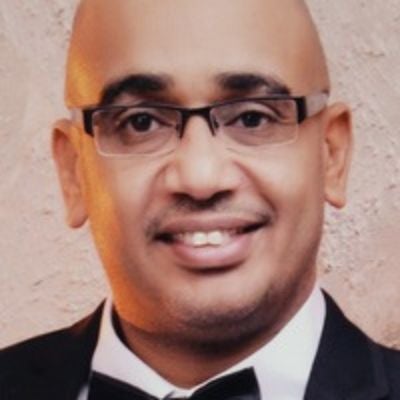
Reimagining Sudan
This panel explores how political developments in Sudan over the past decade brought new ideas and fresh perspectives into the political arena. The evolution of Sudan’s civil society—since the mass protests of December 2018, the coup of October 2021, and the start of the current conflict in April 2023—has been driven by new ideas of governance and state-building. The discussion traces how (and why) civil society projected visions of a Sudanese state that attracted both attention and broader public support. It brings together experts on history, civil society, and local governance. This panel aims to situate the role of civil society within recent political developments in Sudan, highlight the contradictions between their vision and that of the political establishment, and what this means for state-building in the future.
Speakers:

Khalid Elagab Ahmed teaches International Affairs at Qatar University. Previously, he taught at the African Studies Program & Department of Political Science, University of Toronto. His research interests include the application of post-colonial/critical theory approaches to the study of mediation, IR, security, peacebuilding, development, the ideology and methodology of “Knowledge,” and the constitutive role of the subaltern within the global/international political economy.

Muzan Alneel is a Sudanese industrial policy researcher and writer, passionate about development governance and people-centered policy design. She is the co-founder and Managing Director of ISTinaD Research Center (Innovation, Science, and Technology for People-Centered Development), a Sudan-based research institution established in 2021 to advance equitable and inclusive industrial development. Her work explores the intersections of industrial policy, institutional governance, and participatory policymaking. Her ongoing research focuses on community resilience in wartime Sudan, researching survival strategies like mutual aid networks and small-scale productive activities that sustain livelihoods amid conflict. She is currently a Research Fellow at the Transnational Institute (TNI) and was previously a Non-Resident Fellow at the Tahrir Institute for Middle East Policy (TIMEP). She contributed to Sudan’s industrial policy landscape as a consultant at the Industrial Research and Consultancy Center (IRCC), where she helped establish the Institute for Industrial Policy Studies. Her research and advocacy aim to bridge policy gaps and foster development strategies that prioritize people’s needs and agency.

Nafisa Eltahir is a Sudanese journalist and a member of Locale. As a reporter for Reuters since 2018, she has focused on the Sudanese revolution, transitional period, and war, with a focus on bringing forward the experiences of ordinary Sudanese beyond imposed narratives. With Locale, she has worked on projects that illuminate corners of the Sudanese archive, including the This Will Have Been exhibition in Khartoum and the book After Memory.

Nesrine Malik is a Sudanese author and journalist known for her wide-ranging commentary on issues of race, identity, politics, and international affairs. Her book We Need New Stories: Challenging the Toxic Myths Behind Our Age of Discontent (2019) critiques the narrative foundations of increasingly intolerant and authoritarian politics in Britain and the United States, exploring how once-fringe views have gone mainstream. Her columns in leading outlets, including the Guardian, New York Times, and Washington Post, address topics ranging from Islamophobia and feminism to African politics, with deep insights into the ways colonial and postcolonial legacies shape our contemporary world. She received the 2021 Robert B. Silvers Prize for Journalism.
Moderator:

Muez Ali is a Research and Policy Lead at Earthna: Center for a Sustainable Future at Qatar Foundation, an Honorary Research Fellow at the Bartlett School of Environment, Energy and Resources at UCL, London, and an Adjunct Lecturer at Georgetown University in Qatar. His research activities and interests span food security, climate change in the MENA region and Sub-Saharan Africa, electrification and energy access, and the political economy of knowledge production and development. On Sudan, his research focuses on social and economic policy, conflict, civil society, and governance. With Alneel and Hassanain, he is co-author of “Conditionality Breeds Contempt: Donor and Multilateral Myopia in Sudan,” in African Studies Review 67, no. 4 (2024).